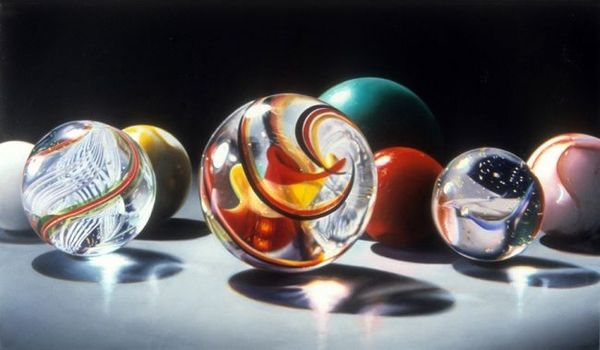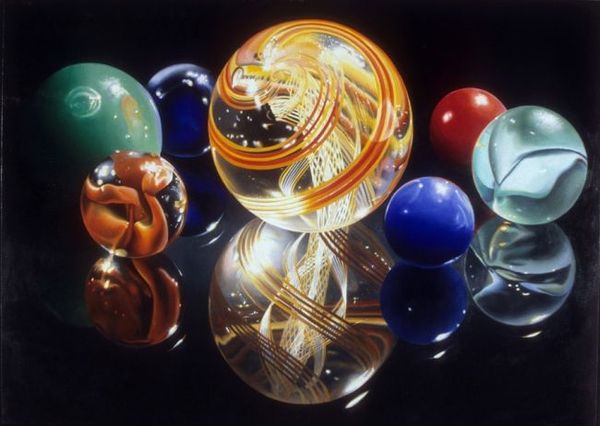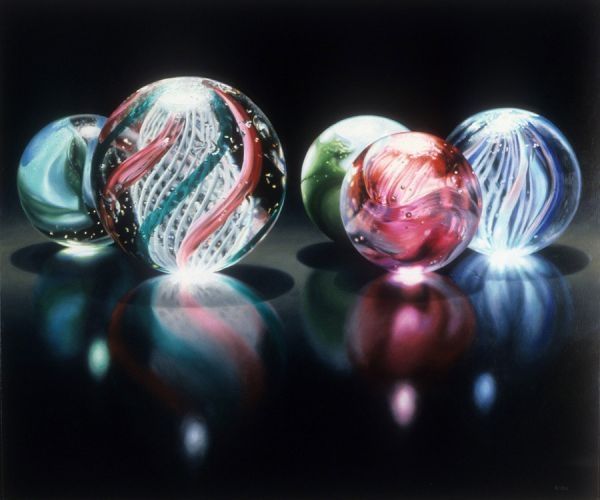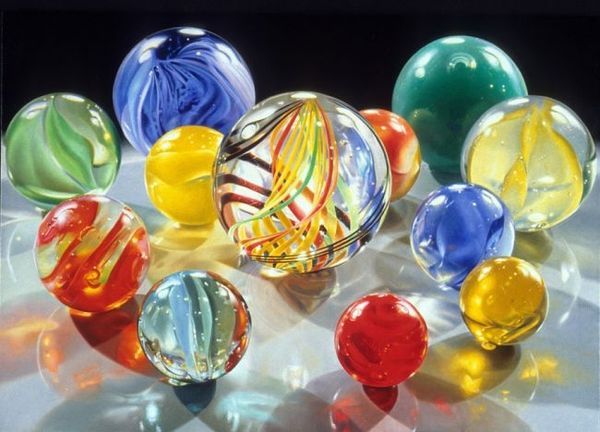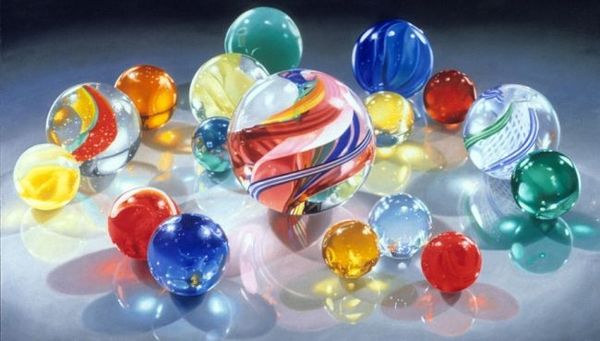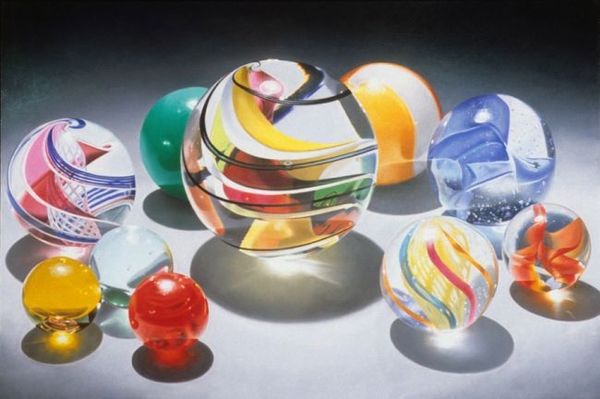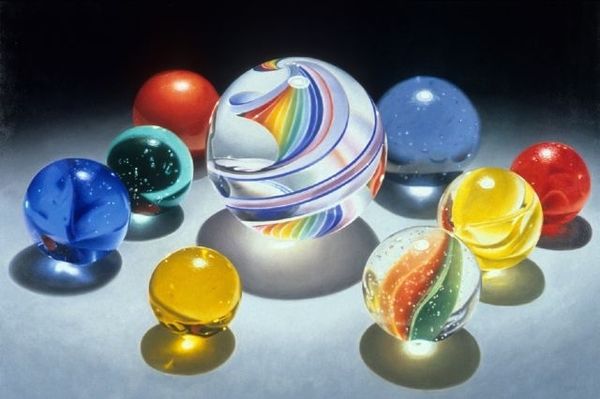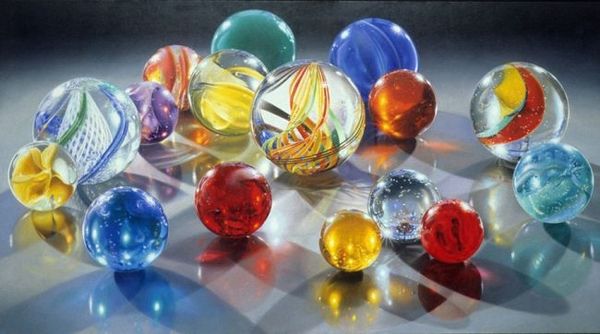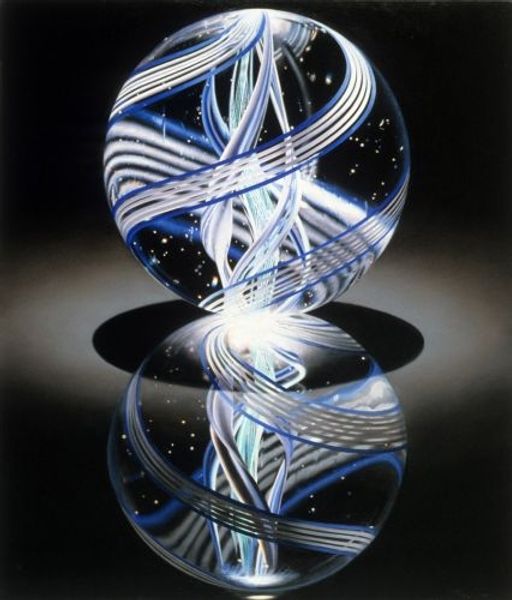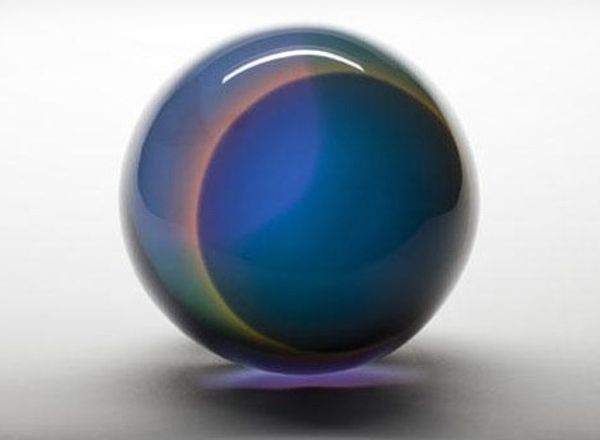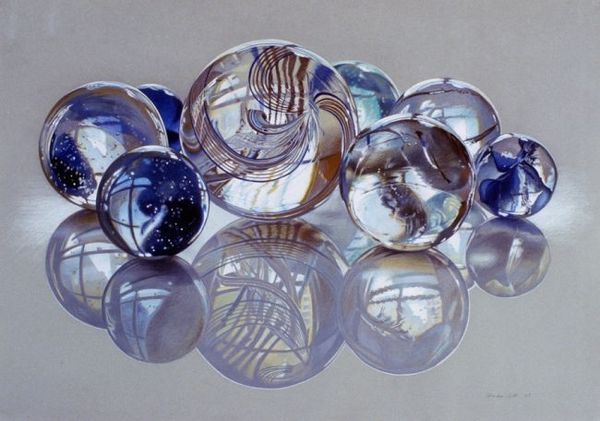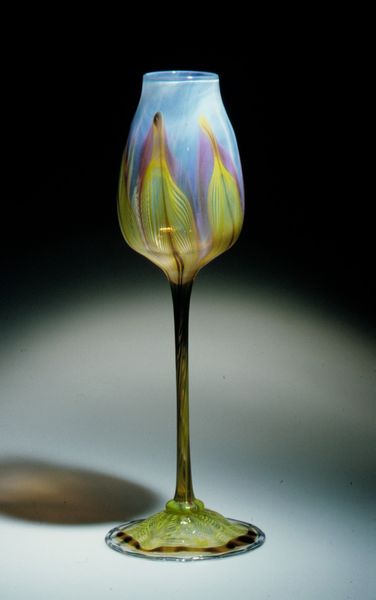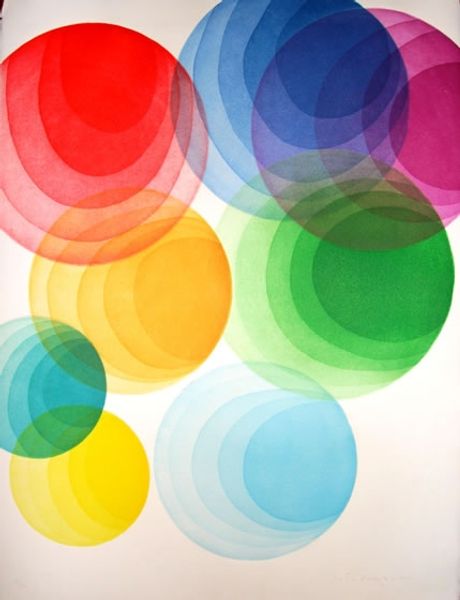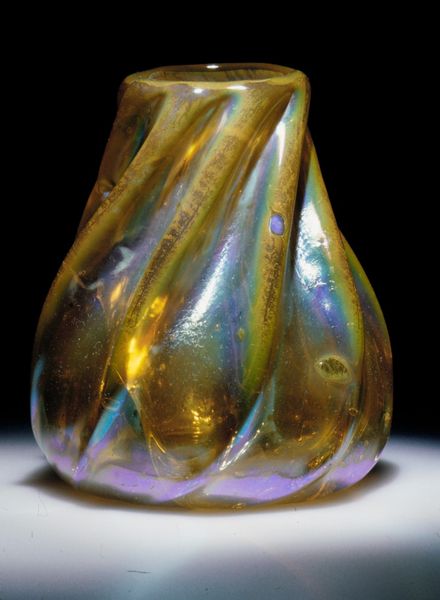
painting, acrylic-paint
#
contemporary
#
painting
#
acrylic-paint
#
acrylic on canvas
#
geometric
#
geometric-abstraction
#
realism
Copyright: Charles Bell,Fair Use
Curator: Welcome. Here we have "Marbles VII" painted in 1982 by Charles Bell. Bell worked primarily with acrylic on canvas. Editor: Okay, wow. My first thought? Giant, luminous planets! They're arranged so perfectly. It’s so real it’s unreal, like a memory of childhood inflated to a godlike scale. Curator: Well, you’ve touched on a couple of key aspects. This photorealistic style, almost hyperrealistic, creates that tension. It demands precision. But that also places him within this broader history of artists pushing painting's limits of representation after photography took hold as an alternative representational device. Editor: Exactly, it's almost as if Bell is saying "Oh, you have cameras? Well check THIS out!" It makes me wonder about the labour; like each stroke of colour is an ode to seeing, feeling, believing. What is being copied? What is being idealized? Are the smooth shiny surfaces hiding a more complex world? Curator: It also seems he is trying to give a common childhood thing that elevated role that he often finds for many ordinary consumer products. From this period we also have quite a few of images depicting toys or tin mechanical creations that seem to share this impulse. We can speculate what drove this vision; his images invite discussion about material culture, value, or the place of objects in our lives. Editor: Maybe they represent nostalgia as a constructed fantasy. Look how smooth those surfaces are. Like a perfect dream or desire. There is also a melancholy here, no? Even if the image is vibrant, it also transmits a feeling of perfect, static immobility... The shadow play gives the subject dimension. And as much as one might have memories associated with such items, they could never have been perfect as how the artist portrayed them. Curator: Very astute. With photorealism came an inherent comment on mediation and truth. I agree, there's a calculated element. Bell's Marbles paintings weren't about recreating reality. Editor: And I suspect also not even representing marbles as we find them. In the end he made something of his own, even in using old techniques and styles. So thank you, Charles Bell, for making my brain bounce! Curator: Thank you both for taking the time. These objects ask more about our relation with how things are than in the simple idea of representation.
Comments
No comments
Be the first to comment and join the conversation on the ultimate creative platform.
